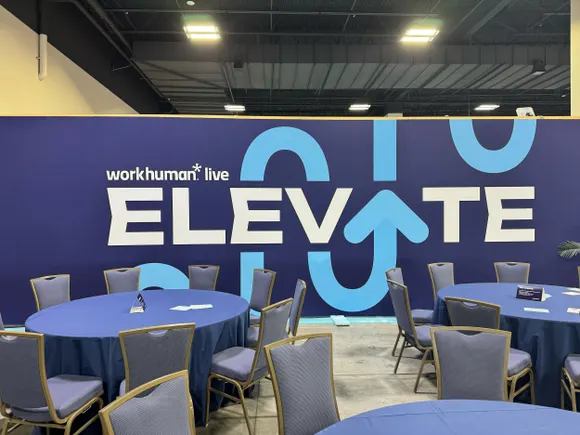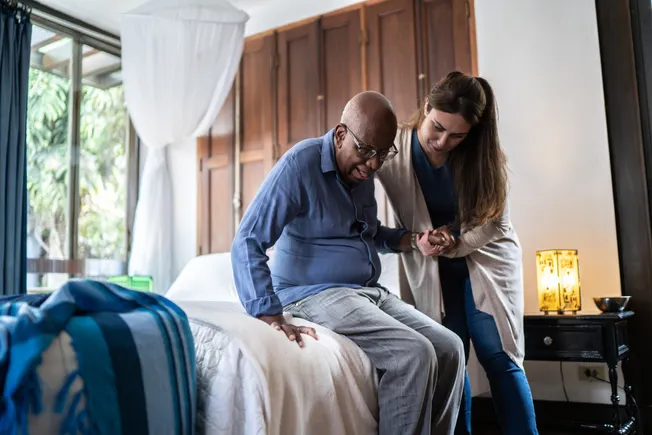AURORA, Colo. — Employers may gravitate toward the Ted Lassos in the workplace more than the Roy Kents, Adam Grant told an audience in a Tuesday keynote address at Workhuman Live 2025 — and this may be to their detriment.
Grant divided workers into four categories: agreeable givers, agreeable takers, disagreeable givers and disagreeable takers. “Our most recognized, beloved colleagues are agreeable givers,” Grant said, likening such workers to lovable, fictional coach Ted Lasso. In contrast, the disagreeable givers are more like Roy Kent, the gruff but straightforward former star.
Grant noted that while leaders tend to warm to agreeable givers, they often dismiss disagreeable givers, despite the latter being more likely to provide the feedback the organization really needs to hear.
“It’s such a valuable thing to look at those people and not let the crusty exterior detract from the fact that they are trying to make you better,” Grant said. “The more that you recognize and reward and promote those people, the more your culture tends to improve.”
Disagreeable givers tend to sense their feedback is unwelcome and stay silent, however, which means establishing a psychologically safe environment is crucial for organizations that want to encourage speaking up.
How does an organization create psychological safety? Most employers solicit suggestions and concerns, Grant said, but workers are skeptical of the authenticity of such offers.
Openly sharing mistakes and self-criticism is “a much more powerful approach” to getting employees with needed suggestions to share them, Grant said. “When you do that, you’re not just claiming you’re open to feedback, you’re actually proving you can handle it.”
Once workers with feedback feel free to open up, Grant recommended turning those disagreeable givers into coaches, involving them in finding solutions as well.
He used the example of speaking before a group of generals and colonels, an engagement he accepted despite feeling “massively underqualified.” The session went terribly, he said, and when he read through the feedback forms afterward, “they were devastating.”
Grant had a second session with a new group scheduled for the following week, so he went back to the military leaders for not just feedback, but advice. “I didn’t know it at the time, but this has been shown the past few years: You get better information if instead of just asking for feedback, you seek advice,” he said. “Feedback is backward-looking. People tell you what you did wrong yesterday. Advice is forward-looking. They tell you what you can improve upon tomorrow.”
After the leaders told him they knew he was young and inexperienced — and that he ought to acknowledge it — Grant incorporated the feedback to break the ice with the next group. He stared down the “meanest-looking” person and said “I know what you’re thinking right now: ‘What could I possibly learn from a professor who’s 12 years old?’”
The comment got a laugh, and the session went better, Grant said. “It broke the tension in the room.”
“It was a great lesson for me that the very people who are criticizing you — provided that they have your best interest at heart and they’re willing to give rather than take, provided they’re somewhat knowledgeable about you and how you’re trying to grow — are actually the best people to coach you,” Grant said.






Leave a Reply